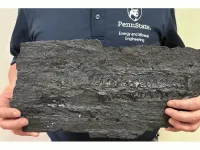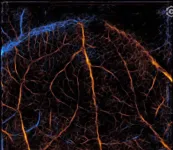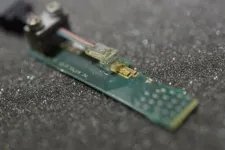(Press-News.org) LA JOLLA, CA—A San Diego team, led by scientists at La Jolla Institute for Immunology (LJI), has won the top prizes in the Nucleate Activator competition. Out of 1,000 initial competitors, the LJI team advanced to the final four teams and swept all the prizes they entered for. Their winning research proposal outlines how scientists could stop dengue virus and Zika virus by developing sophisticated vaccines that activate both B cells and T cells.
Nucleate is a student-led, non-profit organization dedicated to empowering early-stage, life-science startups and emerging biotech leaders. The Nucleate Activator program connects early career researchers with MBA students and entrepreneurs interested in supporting potential biotech start ups.
By communicating the need for dengue and Zika vaccines—and their approach to make those vaccines a reality—the LJI-led team won Nucleate's Alnylam Pharmaceuticals for Scientific Excellence Award; the Genentech Award for Justice, Diversity, Equity, and Inclusion; and the MilliporeSigma Award for Global Impact.
"We were humbled by the jury’s reaction," says LJI Postdoctoral Fellow Rúbens Alves, Ph.D. "Our project was recognized as having real potential, and our team has received support from people who really care."
Alves led the team through the nearly year-long competition process and was thrilled to see the LJI/UC San Diego team advance to the final pitch round. His team members were LJI Instructor Annie Elong Ngono, Ph.D., UC San Diego M.B.A. candidate Angus Wu, and UC San Diego M.D.-M.S. candidate Victoria Smith. LJI Professor Sujan Shresta, Ph.D., served as team mentor.
For the competition, participants were required to develop a plan for a potential biotech startup where they were the co-founders. The team chose "Toga Therapeutics" as their start-up name (after the Togavirus family of pathogens, which the self-amplifying RNA machinery comes from), and developed their company pitch as they advanced through the competition and met with Nucleate mentors.
Toga's pitch builds on nearly two decades of critical research in the Shresta Laboratory. Shresta studies the interaction between flaviviruses, such as dengue, Zika, and Japanese encephalitis, and the immune system. This research has shed light on the importance of a "balanced" immune response that harnesses both antibody-producing B cells to prevent infection and T cells to clear infected cells and regulate the body's inflammatory response.
As Alves points out, previous dengue vaccine candidates have failed because of the broad range of types of dengue virus. Without comprehensive immunity against all dengue "serotypes," vaccinated patients can get actually "primed" for more severe infections, a very counterproductive and possibly dangerous outcome. Dengue virus and Zika virus overlap in many regions of the world, and Shresta has shown that Zika virus infection or vaccine-induced immune response may also precipitate severe dengue. This means vaccines need to address both pathogens.
To solve this problem, the Toga team proposed a strategy to engineer a safe and effective immune system response using self-amplifying RNA (based on the Togavirus family member-based vaccine platform) to produce stable antigens at a low cost.
In fact, Elong Ngono says this kind of RNA-based platform holds promise because it is versatile. Researchers could produce antigens against flaviviruses and potentially many other viral families. Toga's approach to vaccine antigen production could even lead to new types of cancer immunotherapies.
As the researchers developed their Nucleate pitch, they relied on Wu and Smith's business expertise to show how this research approach could be financially viable. Through Nucleate, they also connected with a team of professional research and business mentors who helped refine their vision. The LJI Business Development staff also worked with the team to strengthen their pitch.
On May 17, 2023, the Toga team delivered their polished pitch at Nucleate's San Diego Bio and Eco West Activator Final Pitch showcase. The Toga team had their eye on three prizes, and they hoped to earn just one of them. Instead, the judges unanimously awarded the team all three of the prizes they had entered for.
"We've really made people aware that we need a dengue and Zika vaccine," says Elong Ngono. "Working with Nucleate made it possible for people to understand our research and know how to help."
The team now hopes to build on the business expertise they gained through the Nucleate Activator program and spin-off Toga's strategy into an actual biotech start-up.
Alves says the Genentech Award for Justice, Diversity, Equity, and Inclusion holds special significance for him. Alves is from Brazil and is from the first generation in his family to go to college. In fact most of the Toga team grew up outside the United States, in Nepal, France, Taiwan, and Cameroon.
"We say that from diversity comes strength," says Alves. "Different parts of the world have different problems, but we really believe in the same vision: vaccines for all."
About La Jolla Institute
La Jolla Institute for Immunology is dedicated to understanding the intricacies and power of the immune system so that we may apply that knowledge to promote human health and prevent a wide range of diseases. Since its founding in 1988 as an independent, nonprofit research organization, the Institute has made numerous advances leading toward its goal: life without disease. Visit lji.org for more information.
END
LJI-led team wins top Nucleate honors for virus vaccine development proposal
San Diego scientists work with business experts to advance dengue and Zika virus vaccine strategy
2023-05-25
ELSE PRESS RELEASES FROM THIS DATE:
Hydrogen battery: Storing hydrogen in coal may help power clean energy economy
2023-05-25
UNIVERSITY PARK, Pa. — The quest to develop hydrogen as a clean energy source that could curb our dependence on fossil fuels may lead to an unexpected place — coal. A team of Penn State scientists found that coal may represent a potential way to store hydrogen gas, much like batteries store energy for future use, addressing a major hurdle in developing a clean energy supply chain.
“We found that coal can be this geological hydrogen battery,” said Shimin Liu, associate professor of energy and mineral engineering at Penn State. “You could inject and store the hydrogen energy and have it there when you need to use it.”
Hydrogen ...
Artificial muscle fibers could serve as cell scaffolds
2023-05-25
In two new studies, North Carolina State University researchers designed and tested a series of textile fibers that can change shape and generate force like a muscle. In the first study, the researchers focused on the materials’ influence on artificial muscles’ strength and contraction length. The findings could help researchers tailor the fibers for different applications.
In the second, proof-of-concept study, the researchers tested their fibers as scaffolds for live cells. Their findings suggest the fibers – known as “fiber robots” ...
Argonne hosts demo day for Lab-Embedded Entrepreneurship Program
2023-05-25
Twenty startups will present their technologies for a clean energy future at this year’s Lab-Embedded Entrepreneur Program (LEEP) Demo Day, June 7, in Chicago. LEEP connects entrepreneurs with resources and innovation ecosystems at U.S. Department of Energy (DOE) national labs.
In addition to demos from companies currently participating in LEEP, the event at the Sheraton Grand Chicago Riverwalk will also feature a panel discussion where program graduates share insights and advice about successful entrepreneurship. The technologies on display span renewable energy, materials for clean energy and water, batteries, ...
Helping virtual reality reflect social realities
2023-05-25
Research on virtual reality is expanding as the technology grows, but too much of that research is being conducted with participants who don’t reflect the general population.
The Virtual Experience Research Accelerator (VERA), a $5 million National Science Foundation-funded project, is creating a system to provide researchers with access to large, reliable, diverse groups of participants for an array of research projects on and using VR.
“A lot of research in this area suffers from using participant samples ...
New method tracking changes in blood vessels could advance brain disease detection
2023-05-25
PROVIDENCE, R.I. [Brown University] — While age-related brain disorders like Alzheimer’s disease often develop slowly across an individual’s lifetime, they usually aren’t detected until symptoms have already started. With that in mind, teams of biomedical researchers led by Brown University scientists have been exploring for years whether devastating neurodegenerative diseases could be caught decades earlier — perhaps through something as simple as a routine eye exam instead of a battery of diagnostic tests.
In a new study, one of the Brown-led ...
New framework for super-resolution ultrasound
2023-05-25
Researchers at the Beckman Institute for Advanced Science and Technology used deep learning to develop a new framework for super-resolution ultrasound.
Traditional super-resolution ultrasound techniques use microbubbles: tiny spheres of gas encased in a protein or lipid shell. Microbubbles are considered to be a contrast agent, which means they can be injected into a blood vessel to increase the clarity of an ultrasound image.
Conventional ultrasound has been commonplace for over 50 years. The development of super-resolution technology in the last decade has introduced new challenges. Super-resolution ultrasound provides a much clearer picture than the traditional method. ...
Simon Fraser University becomes global instructor training facility for Siemens mechatronic systems certification program
2023-05-25
Responding to a growing need for training in automation systems in Canada and globally, Siemens and Simon Fraser University (SFU) have announced that SFU is the first and only training facility for instructors delivering the globally recognized Level 3 Siemens Mechatronic Systems Certification program (SMSCP). Instructors, upon completion of the two-week long training will be qualified to deliver the Level 3 certification mechatronics training, vital for providing students with real-world technical skills, and helping prepare them to thrive in a high-tech world of work. Level 1 and Level 2 ...
Reconstructing brain connectivity using 3D images
2023-05-25
Dr. Shuiwang Ji, a professor in the Department of Computer Science and Engineering at Texas A&M University, is part of a collaborative research community that recently had its paper titled “BigNeuron: a resource to benchmark and predict performance of algorithms for automated tracing of neurons in light microscopy datasets” published in the April issue of the journal Nature Methods.
Initiated in 2015 and led by the Allen Institute for Brain Science, BigNeuron is an international initiative that brings together computer scientists and neuroscientists from a dozen institutions. ...
Words matter: How researchers can avoid stigmatizing language
2023-05-25
Word choice matters—a lot— when it comes to research. That’s the main takeaway from a new article co-authored by Edson College of Nursing and Health Innovation Assistant Professor Angel Algarin and published in Health Communication.
“Researchers in any field should be cognizant of the language they’re using to describe the people they study so they don’t inadvertently add to the use of stigmatizing language,” said Algarin.
For the article, Algarin and his co-authors performed a content ...
Chip-based QKD achieves higher transmission speeds
2023-05-25
WASHINGTON — Researchers have developed a quantum key distribution (QKD) system based on integrated photonics that can transmit secure keys at unprecedented speeds. The proof-of-principle experiments represent an important step toward real-world application of this highly secure communication method.
QKD is a well-established method of providing secret keys for secure communication between distant parties. By using the quantum properties of light to generate secure random keys for encrypting and ...
LAST 30 PRESS RELEASES:
Celebrity dolphin of Venice doesn’t need special protection – except from humans
Tulane study reveals key differences in long-term brain effects of COVID-19 and flu
The long standing commercialization challenge of lithium batteries, often called the dream battery, has been solved.
New method to remove toxic PFAS chemicals from water
The nanozymes hypothesis of the origin of life (on Earth) proposed
Microalgae-derived biochar enables fast, low-cost detection of hydrogen peroxide
Researchers highlight promise of biochar composites for sustainable 3D printing
Machine learning helps design low-cost biochar to fight phosphorus pollution in lakes
Urine tests confirm alcohol consumption in wild African chimpanzees
Barshop Institute to receive up to $38 million from ARPA-H, anchoring UT San Antonio as a national leader in aging and healthy longevity science
Anion-cation synergistic additives solve the "performance triangle" problem in zinc-iodine batteries
Ancient diets reveal surprising survival strategies in prehistoric Poland
Pre-pregnancy parental overweight/obesity linked to next generation’s heightened fatty liver disease risk
Obstructive sleep apnoea may cost UK + US economies billions in lost productivity
Guidelines set new playbook for pediatric clinical trial reporting
Adolescent cannabis use may follow the same pattern as alcohol use
Lifespan-extending treatments increase variation in age at time of death
From ancient myths to ‘Indo-manga’: Artists in the Global South are reframing the comic
Putting some ‘muscle’ into material design
House fires release harmful compounds into the air
Novel structural insights into Phytophthora effectors challenge long-held assumptions in plant pathology
Q&A: Researchers discuss potential solutions for the feedback loop affecting scientific publishing
A new ecological model highlights how fluctuating environments push microbes to work together
Chapman University researcher warns of structural risks at Grand Renaissance Dam putting property and lives in danger
Courtship is complicated, even in fruit flies
Columbia announces ARPA-H contract to advance science of healthy aging
New NYUAD study reveals hidden stress facing coral reef fish in the Arabian Gulf
36 months later: Distance learning in the wake of COVID-19
Blaming beavers for flood damage is bad policy and bad science, Concordia research shows
The new ‘forever’ contaminant? SFU study raises alarm on marine fiberglass pollution
[Press-News.org] LJI-led team wins top Nucleate honors for virus vaccine development proposalSan Diego scientists work with business experts to advance dengue and Zika virus vaccine strategy



